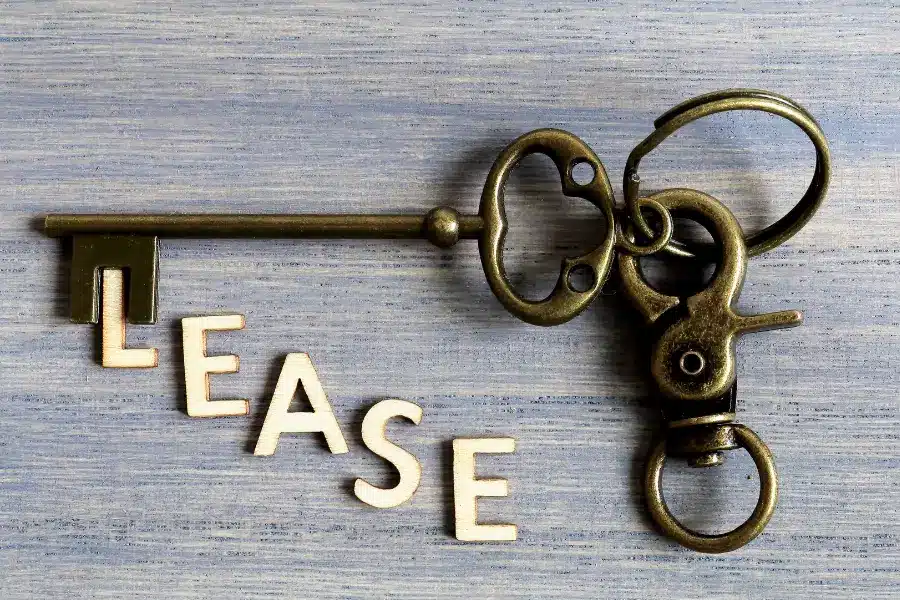As a landlord, it’s important to have clear policies in your rental agreement contract before taking on tenants.
While there are some legal obligations you must take into account, many of the policies ultimately come down to your preferences since the landlord insurance is a type of insurance that protects property owners who rent out their properties to tenants. It typically includes coverage for property damage, liability, loss of rental income, and legal expenses. It can also provide financial protection and peace of mind for landlords in case of unexpected events, such as natural disasters, tenant lawsuits, or property damage.
With that being said, here are six policies all landlords should include in their lease agreements:
Pet Rent and Pet Fees
Although pets pose an added risk to your property, not allowing them would be counterproductive. A majority of renters in today’s market own pets, so if you adhered to a no-pet policy, you’d be seriously limiting your pool of renters.
Therefore, we recommend allowing pets in your leases, but with a clear rental pet policy. When it comes to your pet policy, there are a few options to choose from.
The first is a pet fee, which is a one-time payment, usually between $50 and $500, that a tenant makes when they bring a pet into the unit.
Your second option is to charge pet rent, which is a monthly fee between $10 and $60 that your tenant pays on top of regular rent.
Pet fees and pet rent are great ways to offset the risk that pets bring to your property.
Security Deposit
Security deposits act as protection for landlords by covering damage or unpaid rent when a tenant moves out of your property. If you want financial flexibility on your security deposits, you may look for financial institutions that offer Mietkautionsbürgschaft.
Your California rental agreement contract should clearly state all the provisions of your security deposit policy. These include the security deposit amount, when and how it should be paid, when you’ll return it, and what conditions warrant not returning it.
It’s important to note that you don’t have complete freedom when it comes to security deposits. State laws largely determine security deposit policy, so be sure to review your state’s legislation before making any decisions.
Late Fees and Grace Periods
Unfortunately, late rental fees are a necessary part of the business. If you don’t have a late fee policy, your tenants have no incentive to pay on time. Furthermore, if you don’t enforce your late fees, your tenants will end up walking all over you.
Your rent policy should also include grace periods. A grace period is a few days of leniency where tenants to get rent payments in without being charged the late fee.
Grace periods account for circumstances like funds taking a few days to transfer or your tenant receiving their paycheck the day rent is due. Keep in mind that many states also have laws regarding grace periods and late fees.
Renters Insurance
Requiring your tenants to purchase a renters insurance policy before moving in is a really good idea. In the event of a fire, natural disaster, or burglary, your property and belongings will be covered by landlord insurance. Unfortunately, your tenant’s belongings won’t be.
In order for your tenants’ belongings to be protected from damage or loss, they’ll need to purchase renters insurance.
Renters insurance is inexpensive, and it’s beneficial to you because it’ll kick in before your landlord insurance does.
Furthermore, if your tenants have renters insurance, they’re less likely to blame you or pursue legal action in the event of an accident.
Subleasing
In the event that your tenant moves out before their lease is over, there’s a chance they’ll want to sublease, which is when a third-party tenant takes over the lease for the original tenant.
Subleasing can be great because it minimizes vacancies and puts the responsibility of finding a new tenant on your current tenant instead of on you. With that being said, you should have clear subleasing policies to minimize the risk of a bad subtenant or suspicious activity.
Here are some good subleasing policies to consider:
- Your consent is required for the sublease
- You will run a full tenant screening on the subtenant
- You require subtenants to pay rent directly to you
- You retain final say
Smoking
Smoking can lead to yellow discoloration, unpleasant odors, buildup in air filters and HVAC units, and even health consequences to current and future tenants.
For these reasons, it’s a good idea to have a no-smoking policy in your lease agreements. At a minimum, if you do decide to allow smoking in your units, you must establish clear rules as to where smoking is permitted and how potential damage will be corrected.
Conclusion
While the decisions are ultimately yours to make, it’s highly recommended that you consider the six policies in this article when drafting your lease agreement. Having strong policies clearly outlined in your lease agreement will save you from loads of trouble down the road.



![10 Best Bags for Nurses | Personal Recommendation [2023] 4 Best Bags For Nurses Reviews in 2021](https://knowworldnow.com/wp-content/uploads/2022/12/Best-Bags-For-Nurses-Reviews-in-2021.webp)



![F95Zone Games - The Ultimate Guide for 2021 [F95Z Guide] 8 F95Zone Games](https://knowworldnow.com/wp-content/uploads/2021/07/ArTtW5LrK3b-z-0-y-637f48d86203817a9042a857.webp)